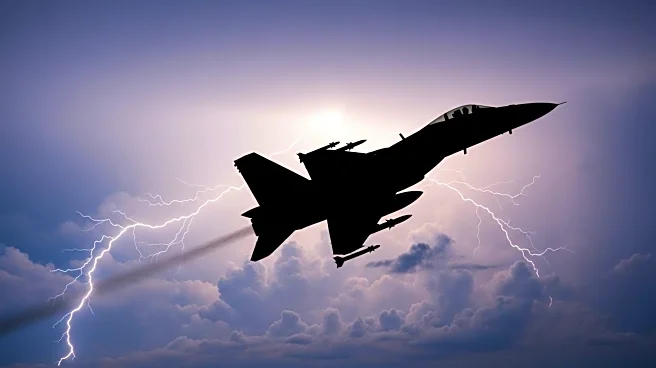What's Happening?
An Israeli airstrike in Yemen's capital, Sanaa, has resulted in the death of Ahmed al-Rahawi, the prime minister of the Houthi-controlled government, along with several ministers. The strike occurred during a government meeting and was broadcasted by a rebel-owned television station. The Israeli military described the operation as a precise strike on a Houthi military target. This event marks the most significant loss for the Houthis since the Israeli-U.S. campaign against the Iranian-backed rebels began. The Houthis have been actively targeting ships in the Red Sea in response to the Israel-Hamas conflict, disrupting a major shipping route.
Why It's Important?
The death of Ahmed al-Rahawi, a senior Houthi official, is a significant escalation in the ongoing conflict involving Israel, the U.S., and the Houthis. This development could further destabilize the region, impacting international shipping through the Red Sea, a vital corridor for global trade. The Houthis' retaliation threats may lead to increased military engagements, affecting geopolitical relations and security in the Middle East. The situation underscores the complex interplay of regional alliances and the potential for broader conflict involving multiple nations.
What's Next?
The Houthis have vowed retaliation, which could lead to further military actions against Israel and its allies. The Israeli military may continue its operations targeting Houthi leadership and infrastructure. The international community, including the U.S., may need to address the escalating tensions to prevent further disruption in the Red Sea and potential humanitarian crises in Yemen. Diplomatic efforts might be necessary to de-escalate the situation and ensure the safety of shipping routes.
Beyond the Headlines
The airstrike highlights the ongoing proxy conflicts in the Middle East, where regional powers engage indirectly through local factions. The involvement of the Houthis in the Israel-Hamas conflict illustrates the broader implications of regional alliances and the impact of external influences on local governance and stability. The situation raises ethical questions about the use of military force and its consequences on civilian populations.









